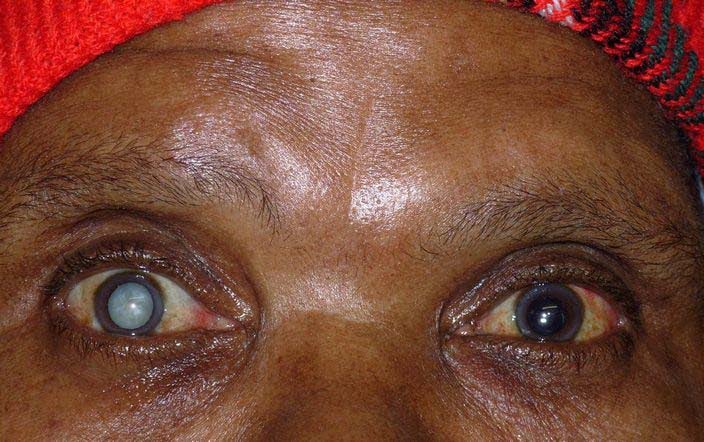An estimated 2.2 million people in Ghana are living with refractive error – a vision problem that occurs when the eye fails to focus light properly on the retina, resulting in blurred vision.
This was disclosed by Professor Samuel Bert Boadi-Kusi, President of the Ghana Optometric Association (GOA), at the 2nd Refractive Error Week Symposium held at the Kwame Nkrumah University of Science and Technology (KNUST).
He highlighted the far-reaching impact of the condition, noting that it significantly affected academic performance, reduced productivity, and diminished overall quality of life.
The symposium, organised by the GOA in collaboration with the Department of Optometry and Visual Sciences at KNUST, also featured a White Coat Ceremony, a symbolic rite of passage that marks the transition of optometry students from classroom learning to clinical training.
Held on the theme: “Bridging the Gap: Dispelling Refractive Error Myths to Improve Access”, the event served as a platform for both reflection and a call to action in addressing one of the leading causes of visual impairment in Ghana.
Prof. Boadi-Kusi explained that the burden of refractive error was especially high in low-income countries, including Ghana and others across Africa.
He emphasised that despite the availability of simple interventions, many people were unable to access eye care services.
“As an Association, GOA is committed to public education and awareness creation. We are also advocating for the integration of refractive error services into the National Health Insurance Scheme (NHIS), and the recruitment and deployment of optometrists to underserved communities,” he stated.
Prof. Boadi-Kusi revealed that Ghana currently had about 600 practicing optometrists, with only half serving in the public sector.
He expressed concern over the lack of active recruitment into the public health system, noting that only retiring professionals had been replaced in recent years.
“I want to use this platform to call on the government, especially the Ministry of Health and the Ghana Health Service, to review the salary structure of optometrists,” he appealed.
He noted that the issue of poor remuneration had been lingering for too long and must be addressed urgently to retain and motivate professionals, particularly those posted to remote areas.
GNA


